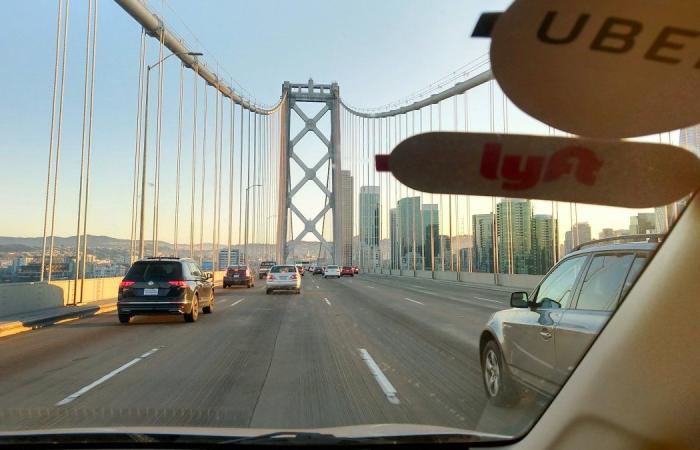During the pandemic-related lockdowns, neither Uber nor Lyft made much money arranging passenger transportation. However, Uber has had great success with its own platform, Uber Eats, which it uses to broker restaurant orders and delivery. Lyft went into this business the other way around: Instead of also brokering restaurant orders to end customers, restaurants and retailers can directly request Lyft chauffeurs for deliveries. The customer relationship is thus retained for the restaurant operators. It should stay that way, assures Lyft co-founder and CEO John Zimmer.
Uber had “a really good idea” with the food deliveries during the lockdown in the wake of the coronavirus pandemic, Zimmer said in a live conversation with the Wall Street Journal on Monday. The delivery of restaurant orders will remain a real business model in one way or another in the long term. However, in tough economic times, it becomes less likely to have a $30 salad delivered to your door.
In the long term, Zimmer still sees great potential in passenger transport. A quadrillion US dollars is spent on this in the USA every year. For US households, transportation is the largest expense item, surpassed only by housing costs. “We’ve barely scratched the surface of what we can do as a company to transform, improve, and save people money,” Zimmer said, emphasizing Lyft’s long-term approach.
“Instead of going for pizza and salads, our perspective will pay off as long as you don’t think in a year or two of pandemics as a timeframe for long-term business strategies,” Zimmer said, confident of future success. At the same time, he expects “very big opportunities for differentiation in the coming months”. His company recently introduced the brokerage of parking spaces. Zimmer has not yet convinced stock market investors, Lyft shares have lost significantly more in value than Uber shares since the IPO.
driver shortage
In the near term, Lyft needs to convince more North Americans to use their private vehicles for Lyft — both Lyft and Uber are suffering from chauffeur shortages, which has resulted in significantly higher travel costs for passengers. In the long term, both companies hope to arrange trips in self-driving cars. Zimmer points out that Americans only use their cars four percent of the time – which is comparable to household washing machines.
US President Joe Biden is aiming for a reinterpretation of existing norms, according to which workers in the “gig economy” are more often classified as employees, which would give them the right to the minimum wage. Zimmer, however, doesn’t think these rules will mean any change for Lyft drivers. The intended regulations were already in place before Trump was in office.
Recommended Editorial Content
With your consent, an external survey (Opinary GmbH) will be loaded here.
Always load polls
Load survey now
In the most populous US state of California, a decision by the Californian Supreme Court threatened the Lyft and Uber business model: numerous professionals, including chauffeurs from Uber and Lyft, were to be classified as employees – mostly against their will. A law then introduced exceptions, but they didn’t apply to Uber and Lyft drivers. But two years ago, a referendum decided in favor of Ubers and Lyfts – so their drivers are still considered self-employed. It is still unclear whether the norms set by the people are permissible.
Lyft supports green levies for top earners
Lyft is currently promoting another referendum in California: The initiative calls for a special levy of 1.75% on annual income over two million dollars. (California’s top tax rate is currently 13.3 percent, on top of the federal tax rate of 37 percent, note.) Money from the 20-year levy will go 45 percent toward subsidies for EV purchases and 35 percent toward installation from charging stations and 20 percent goes towards fighting forest fires. Health and environmentalists, some unions and the Democratic Party support the project, especially since forest fires and traffic are California’s largest sources of greenhouse gases.
However, not only Republicans, but also the teachers’ union and Governor Gavin Newsom from the Democrats, are against the new tax. They point out that California already subsidizes EVs, and that Lyft would benefit indirectly from more charging stations and more private EVs. By 2030, 90 percent of the passenger kilometers brokered by Lyft and Uber must be zero local emissions.
Speaking to The Wall Street Journal, Zimmer was surprised that Newsom called the initiative “cynical.” After all, his company would not receive a share of the revenue from the top-income levy. Uber is not participating in the campaign. The Californians will vote on November 8, the result is open according to opinion polls.
(ds)


